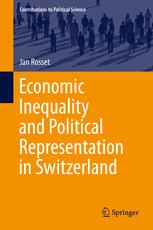

Most ebook files are in PDF format, so you can easily read them using various software such as Foxit Reader or directly on the Google Chrome browser.
Some ebook files are released by publishers in other formats such as .awz, .mobi, .epub, .fb2, etc. You may need to install specific software to read these formats on mobile/PC, such as Calibre.
Please read the tutorial at this link: https://ebookbell.com/faq
We offer FREE conversion to the popular formats you request; however, this may take some time. Therefore, right after payment, please email us, and we will try to provide the service as quickly as possible.
For some exceptional file formats or broken links (if any), please refrain from opening any disputes. Instead, email us first, and we will try to assist within a maximum of 6 hours.
EbookBell Team

5.0
110 reviewsThis book analyzes the link between economic and political inequalities and investigates the mechanisms that lead to economically rooted inequalities in the political representation of citizens’ policy preferences. Focusing on the case of Switzerland and evaluating data from the post-electoral survey, Selects 2007, the author demonstrates that the policy preferences of members of the Federal Assembly best reflect those of rich citizens. This pattern is explained by differential levels of political participation and knowledge across income groups, party finance, the fact that representatives tend to come from higher economic strata, and the failure of the party-system structure to reflect the complexity of policy preferences among citizens.